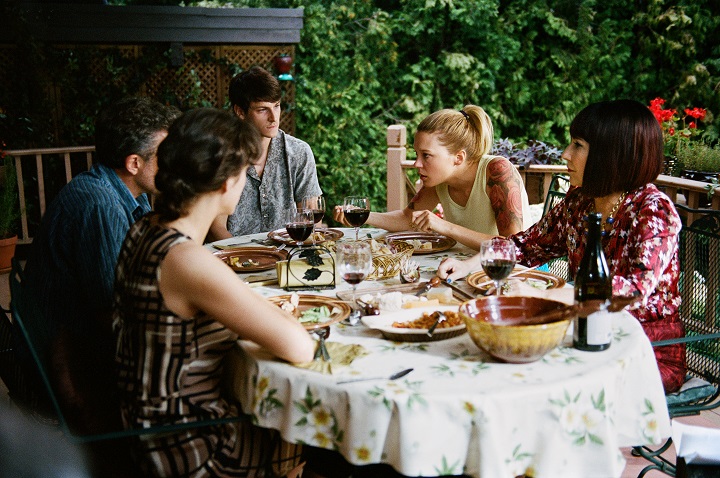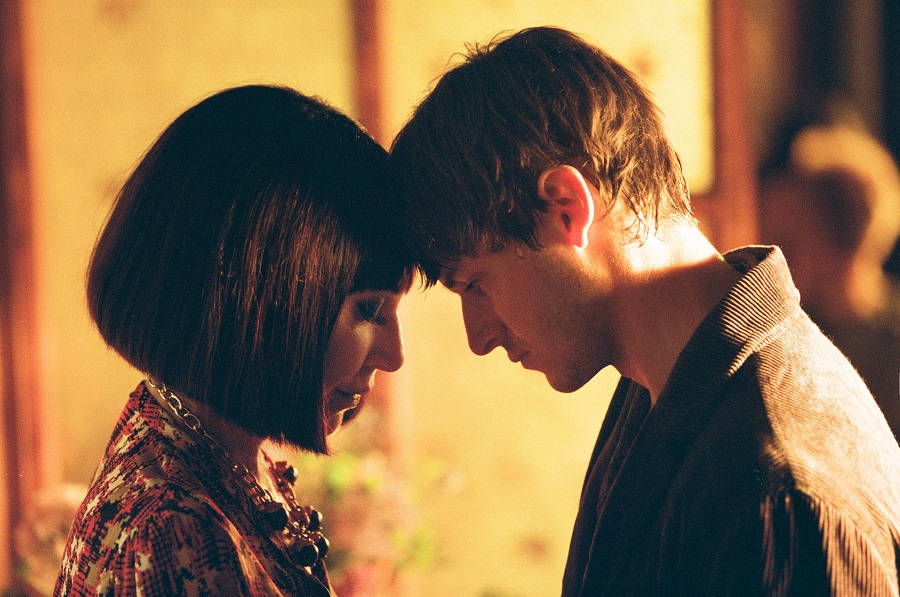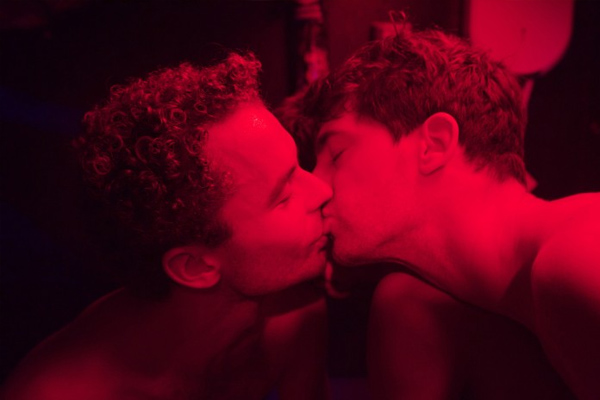It’s Only the End of the World
Xavier Dolan's compelling family reunion drama stars Léa Seydoux and Marion Cotillard
French-Canadian director Xavier Dolan leaves the time and place of It’s Only the End of the World (Juste la fin du monde) deliberately unclear: “Somewhere, a while ago already” is the only clue offered by its opening titles. An adaptation of the 1990 play by the French dramatist Jean-Luc Lagarce, its unspoken subject is AIDS (from which Lagarce himself died in 1995), with its story of a lead character, Louis, returning to his family after a long absence to reveal that he is dying. It’s not only the absence of mobile phones or email that reveals we’re in the past: clearly, it’s a time when medicine could offer nothing.
The setting is also unspecific, and some have assumed that the youthful Québécois director has moved location away from his native Canada, to Europe. I don’t think so: follow the opening sequence of exterior shots which preface the otherwise overwhelmingly claustrophobic action, and the details, the buildings and street-look alike, surely identify as North American (Lucky Strike is the cigarette brand we notice, too).
Dolan has a record of harping on mothers
That issue is more than a detail, since one of the contexts into which It's Only the End of the World fits convincingly is that of American dramatists like Eugene O’Neill or Tennessee Williams and their studies of family units imploding. The film’s opening musical track “Home Is Where It Hurts” by French chansonniere Camille is anthemic for what follows, as Louis’s arrival (after 12 years away) and the meal that follows throw up issues which this more than usually dysfunctional family has been repressing.
Yet it also points up a difference, that Louis (Gaspard Ulliel, main picture) remains essentially a cipher, a central character about whom we learn little. Going back to dramatic precedents, End of the World at times seems like a Long Day’s Journey into Night cut short when its hero makes his premature departure for the airport. Opening voiceover aside, Dolan is as sketchy about Louis – he’s a playwright who has achieved international renown – as Louis himself has been skimpy in his contacts with his family over the years, communication limited to a series of elliptical postcards. His years away have obviously seen him realise his identity in the city, including the homosexuality that also remains largely unbroached as an issue within the family, limited as it is by the attitudes of its times and environment. That means he hardly knows his younger sister Suzanne (Léa Seydoux) at all, and is meeting sister-in-law Catherine (Marion Cotillard) for the first time, though she and her husband Antoine (Vincent Cassel) have named one of their children after him. These two female characters are the ones that come closest to him: Cotillard’s character is especially sensitive, as she instinctively understands the issue – even if her words “Combien de temps?” lose much of their acuity in translation – that does finally remain unspoken.
That means he hardly knows his younger sister Suzanne (Léa Seydoux) at all, and is meeting sister-in-law Catherine (Marion Cotillard) for the first time, though she and her husband Antoine (Vincent Cassel) have named one of their children after him. These two female characters are the ones that come closest to him: Cotillard’s character is especially sensitive, as she instinctively understands the issue – even if her words “Combien de temps?” lose much of their acuity in translation – that does finally remain unspoken.
We may wonder about the dynamics of that marriage. Cassel’s Antoine is so angry, so hostile to the brother to whom he is the absolute opposite: a man who works with his hands, who practically scowls at everything Louis represents (Cassel would make an outstanding Stanley in Williams’s A Streetcar Named Desire on this evidence). The film’s structure gives Louis time alone with each of his family members aside from the general gathering, and the excursion with Antoine into the outside world is bracing, to say the least.
 Nathalie Baye plays Martine, the matriarch. Though it’s the entire family that is on the edge of a nervous breakdown, we certainly sense where it came from. Dolan has a record of harping on mothers – his debut film was titled I Killed My Mother, his most recent one just Mommy – but actually that isn’t the dominating relationship here, rather it’s the whole entity that is under cruel scrutiny. (Nathalie Baye with Gaspard Ulliel, pictured above right.)
Nathalie Baye plays Martine, the matriarch. Though it’s the entire family that is on the edge of a nervous breakdown, we certainly sense where it came from. Dolan has a record of harping on mothers – his debut film was titled I Killed My Mother, his most recent one just Mommy – but actually that isn’t the dominating relationship here, rather it’s the whole entity that is under cruel scrutiny. (Nathalie Baye with Gaspard Ulliel, pictured above right.)
It’s Only the End of the World has expanded its perspective from Dolan’s previous work, and the director himself has spoken of it as “my first [film] as a man”: it is his sixth feature – he is now 27. It won him the Grand Prix at the Cannes film festival last year, yet critical reaction has been distinctly mixed. It’s a film that intentionally makes watching it uncomfortable, as if we are ourselves caught in this claustrophobia, scrapping bitterly while leaving the important things unaddressed. Cinematographer André Turpin certainly keeps us close to the uneasy action, with fast-shifting close-ups on faces, and the speed of dialogue seems occasionally unstoppable, like something we just can’t escape from (on occasions, Louis literally escapes into flashbacks, as if to prove just that).
Yet how bracing it is, such snatches of virtuoso flair. If sheer quality of acting on its own is ever enough to demand a viewing, It’s Only the End of the World compels. Diamond-sharp playing from all, simultaneously sparkling and liable to fracture at any moment.
Overleaf: watch the trailer for It’s Only the End of the World

 They may have a shared purpose for that moment – the film’s French title, Theo & Hugo dans le meme bateau, brings home how they are temporarily indeed “in the same boat” – but it’s the rather freer element of their nocturnal wanderings that really impresses (as does Manuel Marmier’s fluid, atmospheric cinematography). “Paris belongs to us” could almost be a subtitle for the film, as the streets of its northeastern quarters provide a loose backdrop for the couple’s deepening acquaintance; observation of some of the characters they encounter is sensitive, too. Couet and Nambot establish their characters with nicely contrasting touches: the Parisian Theo is reserved, Hugo, an escapee from the provinces, much more impulsive, the latter especially drawing out the writing's humour.
They may have a shared purpose for that moment – the film’s French title, Theo & Hugo dans le meme bateau, brings home how they are temporarily indeed “in the same boat” – but it’s the rather freer element of their nocturnal wanderings that really impresses (as does Manuel Marmier’s fluid, atmospheric cinematography). “Paris belongs to us” could almost be a subtitle for the film, as the streets of its northeastern quarters provide a loose backdrop for the couple’s deepening acquaintance; observation of some of the characters they encounter is sensitive, too. Couet and Nambot establish their characters with nicely contrasting touches: the Parisian Theo is reserved, Hugo, an escapee from the provinces, much more impulsive, the latter especially drawing out the writing's humour.